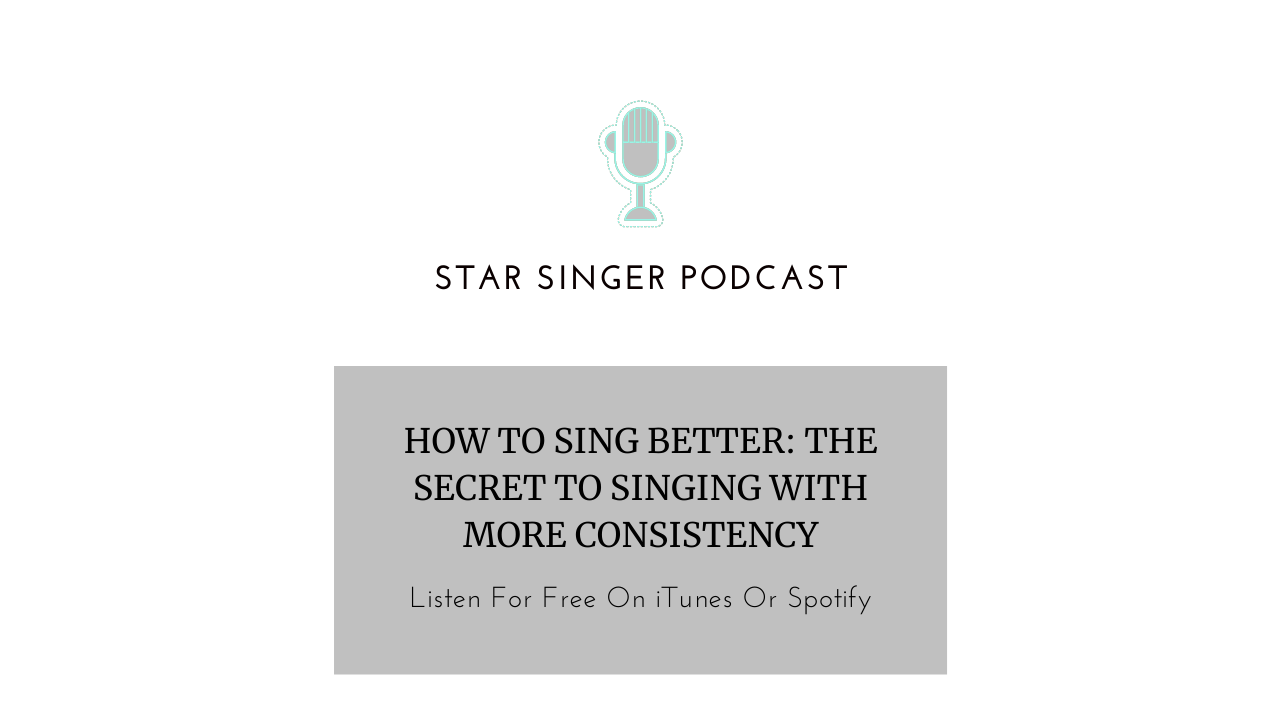How To Sing Better: The Secret To Singing With More Consistency
Mar 17, 2021

If you want to learn how to sing better, want your singing to be more consistent and want to feel in total control of your voice, then you are in the right place!
I’m about to go through the exact process that I use with first time students to help you learn how to sing better.
Ready for what's next? Head over to this free training so that you can discover what you truly need to do in order to move your singing forward > https://www.starsinger.co/singnow
How To Sing Better: A Very Important Question For You
The very first thing I do with new singers in my studio is ask them one big question… but I’m not going to tell you what that question is just yet.
Right now, stop reading and sing a song. It should be a song that you're comfortable with. Sing one minute of that song, then come back.
.
.
.
.
Did you do it? Awesome. Now here’s that question...
.
.
.
.
One a scale of 1-10, how much did you let go? Thinking about effort, volume, and release, give yourself a number.
1- Meh, low vocal quality
10- Loud and proud
95% of singers I work with start out at a 3 or 4… and that is totally normal!
But this is a choice, and you CAN make the choice to sing at an 8 or higher. Choosing to sing at a 3 or a 4 is holding you back and is making it really hard for you to make any improvements or learn how to sing better. From here on out, every time you practice. I want you to make the choice to sing at an 8.
It might feel scary or out of control. It might feel like you won’t be able to sing in tune or sing consistently. These are totally normal feelings! But if you aren’t singing at an 8 all the time, you won’t be able to be consistent, and here’s why:
How To Sing Better: Why you should always practice singing at an 8
Think about pitch in terms of frequency. Frequency is measured in hertz, or the number of oscillations per second. In singing terms, it’s the number of times your vocal cords vibrate per second. Frequency, or pitch, for singers can be affected by so many things, like pressure, air flow, and space, and if these things are always changing for one specific pitch, you won’t be able to be consistent. You should always feel like you are releasing your voice completely, because if you hold back, consistency is going to be very difficult.
When you first start singing at an 8 consistently, it might take your body and voice a couple repetitions to know what to do with the extra volume and energy. You may notice pitch shifts, cracks, etc. After doing this a couple of times, your body will learn what to do with that new power so don’t shy away when you first start singing at an 8. It will get better!
How To Sing Better: Tie your big dreams to your technical goals.
The reason a lot of singers don’t see the improvement they want when they try to learn how to sing better is because they don’t tie their big dreams to their technical goals. When I ask singers what they want, a lot respond with something along the lines of:
-
“I want to bridge and connect my vocal break”
-
“I want to sing higher”
-
“I want to belt higher”
-
“I want to breath better”
But when I ask WHY, they can’t answer me. Once we start working together, we find that the problem is a foundational issue that needs to be addressed first.
I have a no cost training in which I walk you through how to craft a training plan based on your unique dreams and goals. So many singers get caught in the rabbit hole and spend time working on things that aren’t going to move the needle for them or spending way too much time practicing. You only need 10-15 minutes a day, 3-4 times a week. If you don’t hear results in this amount of time, something is wrong - but that isn’t your fault! My no cost training is here to address that.
Head over to this free training so that you can discover what you truly need to do in order to learn how to sing better > https://www.starsinger.co/singnow

